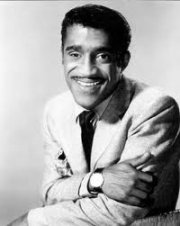
Sammy Davis, Jr.
RETURN TO INDEX |
U.S. Army

 |
American entertainer, primarily a dancer and singer, Davis was a
childhood vaudevillian who became known for his performances on
Broadway and in
Las Vegas, as a recording artist, television and film star, and as a
member of
Frank
Sinatra's "Rat Pack".
Served in WW2j in the European Theater. |
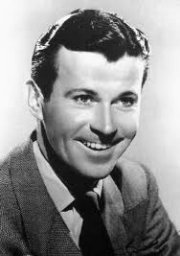
Dennis Day
RETURN TO INDEX |
U.S. Navy
 |
Irish-American singer and radio, television and film personality. First
appeared on
Jack Benny's radio show on October 8, 1939. He continued to
appear as a regular cast member when
The Jack Benny Program became a TV series, staying with the show
until it ended in 1965. Eventually, his own TV series,
The Dennis Day Show was first telecast on NBC on February 8,
1952, and then in the 1953 to 1954 season. Between 1952 and 1978,
he made numerous TV appearances as a singer and actor on such programs
as NBC's
The Gisele MacKenzie Show and ABC's
The Bing Crosby Show,
Alfred Hitchcock Presents and voice for animation on
Johnny Appleseed.
Served in WW2 from 1944 to 1946 as a Lieutenant. |
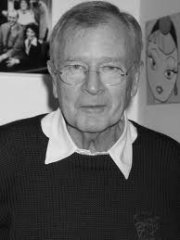
Bill Daily
RETURN TO INDEX |
U.S. Army

 |
American comedian and dramatic actor, and a veteran of many television
sitcoms. He is best known for playing Roger Healey on
I Dream of Jeannie. In the 1960s he earned guest spots on
sitcoms like
My Mother the Car,
The Farmer's Daughter, and
Bewitched. In 1972, two years after Jeannie was canceled,
Daily was back at work and back in an aviator's uniform, in what is
perhaps his signature role - commercial-airline navigator Howard Borden
in
The Bob Newhart Show. Daily would also occasionally serve as a
panelist on the 1970s CBS game show
The
Match Game.
Served in the Korean War. Drafted into the Army and served in with
an artillery unit, later being transferred to an entertainment unit. |
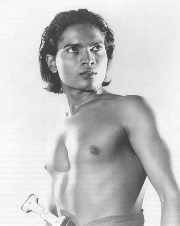
Sabu Dastagir
RETURN TO INDEX |
U.S. Army Air Forces


 |
American film actor of Indian origin. He was normally credited
only by his first name, Sabu, and is primarily known for his work in
film during the 1930s–1940s in Britain and America. Perhaps best
known for his role as Abu in
The Thief of Bagdad (1940).
Served in WW2 as a tail gunner and ball turret gunner on B-24
Liberators. He flew several dozen missions with the 370th Bomb
Squadron of the 307th Bomb Group in the Pacific theater and was awarded
the Distinguished Flying Cross for his valor and bravery. |
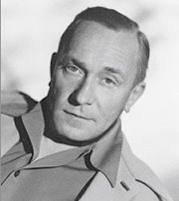
William Demarest
RETURN TO INDEX |
U.S. Army
 |
American
character actor best known for his character Uncle Charley in the
sitcom
My Three Sons
from 1965 to 1972.
Served in WW1. |
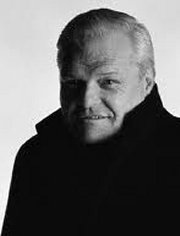
Brian Dennehy
RETURN TO INDEX |
U.S. Marine Corps
 |
American actor of film,
stage and screen. He first appeared in minor screen roles in such
fare as Looking for Mr.
Goodbar (1977),
Semi-Tough (1977) and
Foul Play (1978) and proved popular with casting directors, leading
to regular work. He then appeared in the Cold War thriller
Gorky Park (1983),
Cocoon (1985), and
the western Silverado
(1985). He also had a rich theatrical career and has appeared both
in the U.S. and internationally in dynamic stage productions including
"Death of a Salesman" (for which he picked up the 1999 Best Actor Tony
Award.
Enlisted in 1959, actively serving until 1963. |
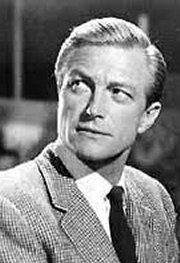
Richard Denning
RETURN TO INDEX |
U.S. Navy

 |
American actor who starred
in such movies as
Creature from the Black Lagoon (1954)
and An
Affair to Remember (1957),
and on radio with Lucille Ball as her husband George Cooper in
My Favorite
Husband (1948 to 1951), the forerunner of television's
I Love Lucy,
for which Denning was replaced by Ball's real-life husband, Desi Arnaz.
He became an actor, best-known for his recurring role as
Governor of
Hawaii Paul Jameson in the
CBS series
Hawaii Five-O
(1968 to 1980).
Interrupted acting career to enlist in the military during WW2. He
served on a submarine in the Pacific Theater as a Yeoman First Class. |
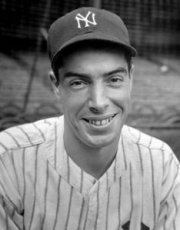
Joe DiMaggio
RETURN TO INDEX |
U.S. Army Air Forces

 |
American Major League Baseball
center fielder who played his entire 13-year career for the New York
Yankees. He is perhaps best known for his 56-game hitting streak
(May 15 to July 16, 1941), a record that still stands. DiMaggio
was elected into the Baseball Hall of Fame in 1955. He was a
three-time MVP winner and 13-time All-Star (the only player to be
selected for the All-Star Game in every season he played). In his
thirteen year career the Yankees won ten American League pennants and
nine World Series championships.
Enlisted on February 17, 1943, rising to the rank of sergeant. He was
stationed at Santa Ana, California, Hawaii, and Atlantic City, New
Jersey, as a physical education instructor. He was released on medical
discharge in September 1945, due to chronic stomach ulcers. |
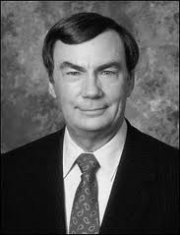
Sam Donaldson
RETURN TO INDEX |
U.S. Army |
American reporter and news
anchor for ABC News, who from dates in 1979 through the 1990s substitute
anchored the Sunday edition of
World News Tonight for regular host Barry Serafin and later Carole
Simpson.
From 1956 to 1959, he served as an artillery officer. |
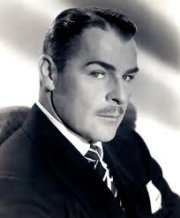
Brian Donlevy
RETURN TO INDEX |
U.S. Army |
Ulster-born American film
actor, noted for playing tough guys from the 1930s to the 1960s. He
usually appeared in supporting roles. Among his best known films are
Beau Geste (1939) and
The Great
McGinty (1940). For his role as Sergeant Markoff in Beau Geste
he was nominated for the Academy Award for Best Supporting Actor.
He lied about his age (he was actually 14) in 1916 so he could join the
army. When Mexican rebels under Villa's command raided Columbus,
NM, and killed 18 American soldiers and civilians, Gen. John J. Pershing
sent American troops to invade Mexico in pursuit of
Pancho Villa.
Donlevy served with that expedition. |
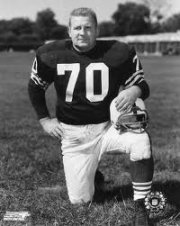
Art Donovan
RETURN TO INDEX |
U.S. Marine Corps
 |
American football defensive
tackle, better known as Art Donovan, who played for three National
Football League teams, most notably the Baltimore Colts. He was
inducted into the Pro Football Hall of Fame in 1968.
Spent four
years in military service during WW2 before playing college
football at Boston College. |
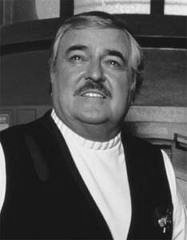
James Doohan
RETURN TO INDEX |
Royal Canadian Artillery



 |
Canadian
character and
voice actor best known for his role as
Montgomery "Scotty" Scott in the
television and
film series
Star Trek.
Served
in WW2 as a Lieutenant during
the invasion of
Normandy
at
Juno Beach on
D-Day. Shooting two
snipers, Doohan led his men to higher ground through a field of
anti-tank mines, where they took defensive positions for the night.
Crossing between command posts at 11:30 that night, Doohan was hit by
six rounds fired from a
Bren gun by a nervous Canadian sentry four in his leg, one in
the chest, and one through his right middle finger. The bullet to
his chest was stopped by a silver cigarette case. His right middle
finger had to be amputated, something he would conceal during his career
as an actor. |
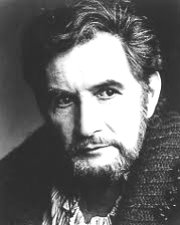
Roy Dotrice
RETURN TO INDEX |
Royal Air Force


 |
British actor known for his Tony Award-winning Broadway performance in
the revival of
A Moon for the Misbegotten. Played the part of John Aubrey in
Brief Lives, a one-man tour de force where he was on stage for more
than two and a half hours. He is arguably best known to North
American audiences for playing the role of "Father" in the 1980s hit TV
series,
Beauty and the Beast. He was appointed Officer of the Order of
the British Empire (OBE) in the 2008 New Year Honours.
Served in WW2. In 1942 at age 16, he joined the Royal Air Force
and was trained as a wireless operator and air gunner. He was soon
flying missions, bombing enemy territory until his plane was shot down.
Captured and taken prisoner, Roy spent the rest of the war as a P.O.W.,
where his first taste for the theater took root, performing concerts to
raise the spirits of his fellow inmates. |
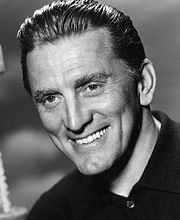
Kirk Douglas
RETURN TO INDEX |
U.S. Navy

 |
American stage and film actor,
film producer
and author. His popular films include
Champion (1949),
Ace in the Hole (1951),
The Bad
and the Beautiful (1952),
Lust for Life (1956),
Paths of Glory
(1957),
Gunfight at the O.K. Corral (1957)
Spartacus (1960), and
Lonely Are
the Brave (1962). He is #17 on the
American
Film Institute's
list of the greatest male American screen legends of all time.
Served in WW2. Enlisted in 1941, shortly
after the U.S. entered the war he attended Midshipman School at Notre Dame
University and was subsequently commissioned as an ensign. He
served with an anti-submarine patrol in the Pacific Theater until he
received a medical discharge following injuries in 1944. Douglas was discharged with the rank of lieutenant (j.g.). |
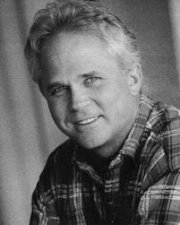
Tony Dow
RETURN TO INDEX |
U.S. Army
National Guard
 |
American film producer, director, sculptor, and a television child actor
of the 1950s and 1960s. Dow is best known for his role in the
television sitcom
Leave It to
Beaver, which ran in primetime from 1957 to 1963. Dow played
"Wallace 'Wally' Cleaver". He appeared on
My Three Sons,
Dr. Kildare,
Mr. Novak,
The Greatest Show on Earth, and
Never Too Young.
He also guest-starred in
Adam-12,
Love American Style,
The Mod Squad,
The Hardy Boys
and Emergency!
In 1986, he wrote an episode of
The
New Leave It to Beaver, and in 1989, he made his directorial debut
with an episode of
The New Lassie, followed by episodes of
Get a Life,
Harry and the Hendersons, Swamp Thing,
Coach, Babylon 5,
Crusade, and
Star
Trek: Deep Space Nine.
Served from 1965 to 1968, interrupting his acting career. |
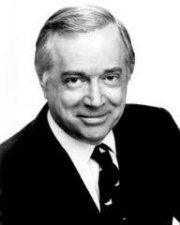
Hugh Downs
RETURN TO INDEX |
U.S. Army
 |
American broadcaster,
television host, producer, and author. He served as anchor of
20/20, host of
The Today Show, announcer for
The Tonight Show
with
Jack Paar,
host of the
Concentration game show, host of the
PBS talk show Over Easy and co-host of the
syndicated talk show Not for Women Only.
Served in WW2 (1943). |
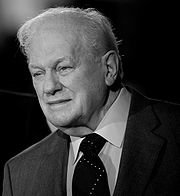
Charles Durning
RETURN TO INDEX |
U.S. Army



 |
American actor with appearances in over 100 films, Durning's memorable
roles include police officers in the Oscar-winning
The Sting
(1973) and crime drama
Dog Day
Afternoon (1975), along with the comedies
Tootsie and
The Best Little Whorehouse in Texas (both 1982), the latter of
which earned him an Academy Award nomination for best supporting actor.
Served in WW2. An Army Ranger he participated in the
Normandy Invasion of France on
D-Day and was among the first troops to land at
Omaha Beach. He was wounded and awarded a Silver Star. He
then took part in the
Battle of the
Bulge, and later wounded a second time and awarded another Purple
Heart. |
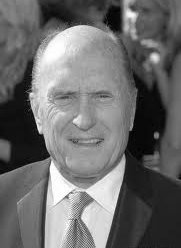
Robert Duvall
RETURN TO INDEX |
U.S. Army
 |
American actor and
director. He has won an
Academy Award,
two
Emmy Awards, and four
Golden Globe Awards over the course of his career. He began
appearing in
theatre
during the late 1950s, moving into small, supporting
television and
film roles during the
early 1960s in such works as
To Kill a Mockingbird (1962). This was followed by a
series of critical successes:
The Godfather
(1972),
The Godfather Part II (1974),
Network (1976),
The Great
Santini (1979), and
Apocalypse Now
(1979).
Served from 19 August 1953 to
20 August 1954, leaving as
Private First
Class.
|
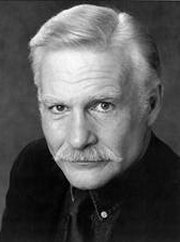
Dale Dye
RETURN TO INDEX |
U.S. Marine Corps








 |
American actor, presenter, and businessman. After his retirement
in 1984 from the United States Marines, Dye founded Warriors, Inc., a
California company that specializes in training actors for realistic
military portrayals, for movies of the war genre. In the 1986
movie
Platoon, he played Captain Harris and also served as military
technical adviser for the movie. He played a role in the movie
Casualties of
War and also played Colonel Robert F. Sink in the HBO miniseries
Band of Brothers, on which his company also worked, and is now
beginning a directing career. He appeared in
Outbreak portraying Lieutenant Colonel Briggs, a U.S. Army officer. He
plays Theodore Roosevelt's superior officer, Colonel Leonard Wood, in
the TNT miniseries
Rough Riders. He has a small role in
Saving
Private Ryan as an aide to General George Catlett Marshall as well
as a role playing the Admiral's aide, Captain Garza, in
Under Siege and
Under Siege 2.
He graduated as a cadet officer from Missouri Military Academy, but
there was no money for college, so he enlisted in the service in January
1964. He served in Vietnam in 1965 and 1967 through 1970,
surviving 31 major combat operations. He emerged from Southeast
Asia with numerous decorations, including a Bronze Star for valor and
three Purple Heart medals for wounds suffered in combat. He spent
13 years as an enlisted Marine, rising to the rank of master sergeant.
He was chosen to attend officer candidate school and was appointed a
warrant officer in 1976. He later converted his commission and was
a captain when he was sent to Beirut with the multinational peacekeeping
force in 1982-83. He served in a variety of assignments around the
world and along the way managed to graduate with a BA degree in English
from the University of Maryland. |
|

